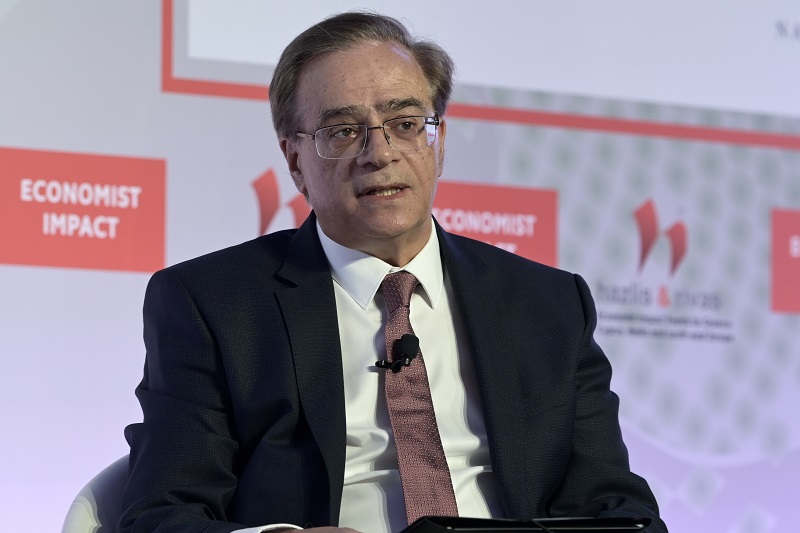The chairman of the board of the National Bank and professor of the University of Piraeus at the Economist conference
The chairman of the board of directors of the National Bank and professor at the Department of Banking and Financial Administration of the University of Piraeus, Gikas Hardouvelis, expressed his optimism for the Greek economy from the stage of the Economist Conference, speaking characteristically of the seriousness that exists throughout the country , with an understanding of the fiscal situation, investment inflow and stability of the financial sector.
Regarding inflation, Mr. Hardouvelis estimates that we are entering an environment with high inflation and high interest rates. Referring to potential risks for the country, he spoke of reforms that may have costs in the present, but bring benefits in the future. Specifically, he noted the areas of justice, reduction of the VAT gap, demographics, etc.
Specifically for the banking sector, Mr. Hardouvelis underlined the reduction in the ratio of non-performing loans to a single-digit percentage from almost 50% to the highest levels in 2016 and the shift of risk – due to the activity of the funds – outside the Greek banks but also outside the country.
Speaking about the international environment, he estimated that the market has learned to manage risks intelligently, while there is a different approach from the rating agencies and regulatory authorities, giving as an example the agreements in the framework of Basel III, the banking union, the ESM and other stability mechanisms . Mr. Hardouvelis emphasized that Greek banks have liquidity and show top performance in Europe, as shown by the stress tests in July. So, he concluded that if there is a crisis in the future it can only come from another sector and if it does, the banks are better prepared to handle it.
Speaking on the same panel, Colin Ellis, global credit strategist, Moody’s Investors Service, said that most of the risks that Moody’s had identified in the Greek economy have been removed. The latest rating of the house emphasized that it demonstrates that the country does not constitute a risk of default. “This is the message of ‘Ba’ and we have been sending it for a long time,” he added.
Speaking in general and about the change in the company’s approach after the financial crisis in the way the evaluations are made, he pointed out that the company does not want to go back and forth in evaluations and grade changes, thus explaining why it has lagged behind other companies in joining the of Greece in the investment grade.
Mr. Ellis referred to the problems in the global banking industry highlighted 13-14 months ago by the failures of regional banks in the US, while in his report on the new approach to supervision to build confidence, he noted that you have to convince your customers that you play on the right terms, “otherwise you’ve lost them,” he added.
On interest rates, the Moody’s Investors Service executive noted the benefits for the banking industry, which is normalizing after 6-7 years of low interest rates, and predicted tight monetary policies from central banks until 2026.




